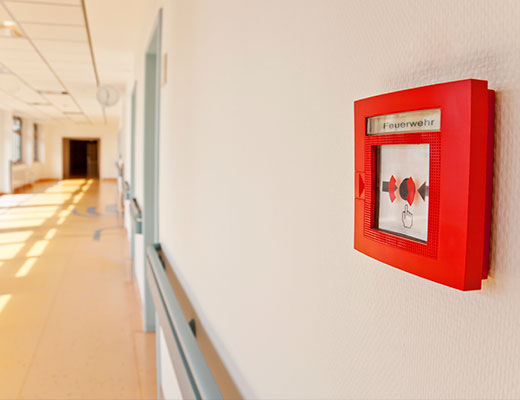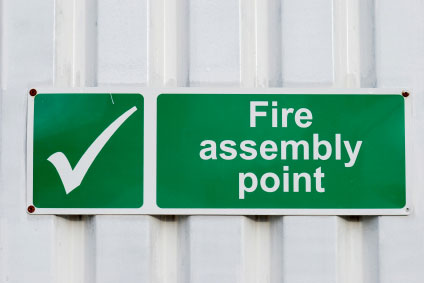A Guide to Fire Drills for Educational Facilities

All commercial premises are required, by law, to have a detailed and clear fire safety plan in place. This should include a risk assessment that highlights any potential hazards – both in the cause of fire and anything that might obstruct evacuation routes.
In order to ensure that all staff and inhabitants are aware of their responsibilities in the event of a fire breaking out, effective fire drill procedure must be included within the overall fire risk assessment. With instructions regarding the location of fire exits, evacuation routes, assembly points and any observations as to where improvements can be made, the information should be available to all who require it.
Information boards detailing the location of assembly points are useful, and are often placed close to alarm points.
Educational Facilities
Fire drills are a particularly important facet of fire safety within educational facilities – especially those containing young children – and should be carried out regularly. Overseen by the designated ‘responsible person’ (as defined in the Regulatory Reform Fire Safety Order – often the headteacher within an educational facility), all schools, colleges, universities and day care centres should have their own, tailored fire drill procedure in place.
Raising the Alarm

Regular testing of alarm systems should already be in place as part of a building’s fire safety, so leaving it until a fire drill to check their status should not be necessary.
Whether you choose to inform students and staff of an upcoming fire drill to avoid panic, or you test the efficacy of the evacuation process with a surprise drill, begin by sounding the alarm.
Evacuation
Any appointed fire marshals on the premises should be on hand to assist during the evacuation, guiding occupants to the nearest fire exit and ensuring that the way is kept clear.
Without running or stopping to pick up possessions, students and staff should leave the building calmly, with marshals aiding movement towards the assembly point.
No lifts or escalators should form part of the evacuation route – staircases must be the only way to descend to a ground floor exit in single file. In respect to this, accommodations must be made for those with mobility issues or any impairments that may prevent safe evacuation.
Assembly Point

The assembly point used should be clearly defined and located away from buildings, out of the reach of smoke and fire, and should not obstruct the path of any emergency vehicles that may need to attend a real fire.
Once all occupants have exited the building, a register should be taken to ensure that everyone who should be present is present, and that no one is left inside the property.
Fire Drills
It is a good idea to uphold fire safety standards by holding a fire drill at least once per term (or every three months), preferably towards the start of this period. Those educational facilities with multiple buildings should carry out drills simultaneously in order to test the suitability of escape routes and assembly points if a complete evacuation were needed. Linking alarm systems across every building is a good way to ensure that drills can be concurrent between properties.
Contact us for fire warden training Call for more information fill out our contact form or give us a call today.
Request a Callback
Just fill in your details below and we'll get back to you as soon as we can!

About Scutum London
Scutum London is a leading expert in fire safety and security solutions for businesses and organisations located across South East England, including London and Surrey.
From fire alarms, fire extinguishers and fire risk assessments to access control, CCTV and intruder alarm systems – and a lot more besides – we offer a comprehensive range of products and services designed to keep you, your business and your staff and visitors safe.
With decades of industry experience to call on, we’re proud to hold accreditations from leading trade associations and bodies such as British Approvals for Fire Equipment (BAFE), the British Fire Consortium, the Fire Industry Association (FIA) and Security Systems and Alarms Inspection Board (SSAIB).
If you’d like to find out more about Scutum London, get in touch with our friendly team or explore our products and services on our site.

